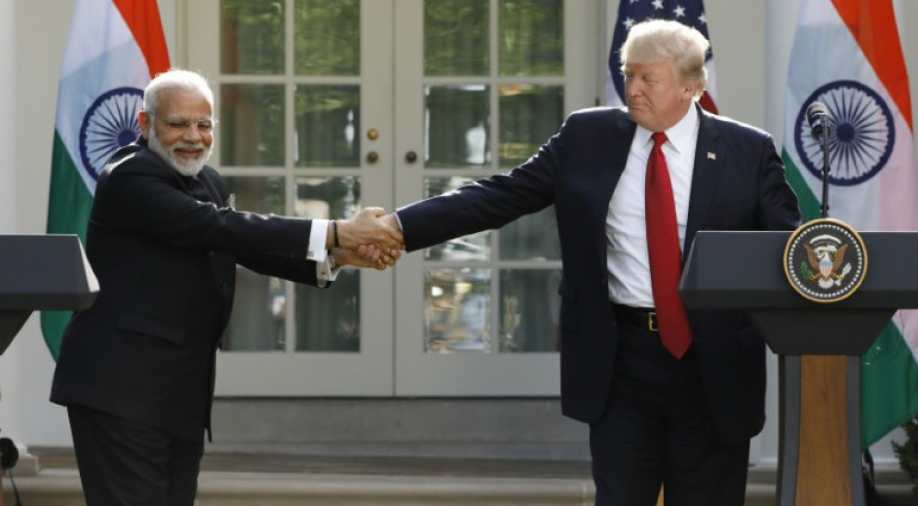WASHINGTON: The Trump administration has exuded confidence that the relationship between India and the US will see a very positive trajectory, hours after Narendra Modi was sworn in as the Prime Minister for the second term.
Modi on Thursday took oath of office, helming a 58-member ministry. He led his Bharatiya Janata Party (BJP) towards a resounding victory, crossing the 300 mark for 542 Lok Sabha seats.
This is really a resilient partnership. It enjoys bipartisan support. It has the structures and it has the strategic commitment in place to take advantage of our leader’s vision. I anticipate a very positive trajectory moving forward, a senior State Department Official said on Thursday.
As was evident in the tweets, statements and phone calls from the US President, Vice President and Secretary of State after the Indian elections, the US looks forward to working with Prime Minister Modi and his government in the second term, the official said.
We do expect that our strategic partnership will continue to flourish under his leadership, the official added.
Recalling Modi’s 2017 visit to the US, the official said that Trump and the Indian prime minister enjoy a warm relationship and personal chemistry.
You saw that when the prime minister was here in June of 2017. That means that the sort of the geopolitical compulsion to this relationship is matched by a personal leadership commitment to advance relations, the official said.
According to the official, Trump and Modi will meet in Japan on the sidelines of the G-20 Summit next month in Osaka, Japan. A trilateral meeting involving the Japanese Prime Minister Shinzo Abe has been planned, the official said.
The partnership encompasses cooperation on a broad range of economic, defense and security issues and stands on the foundation of extensive people to people ties and shared democratic values, the official said.
There’s been a significant momentum in the relationship since the Prime Minister’s visit to Washington with the two plus two mechanism that was developed last year. The meetings between our ministers of foreign affairs and defense will continue to serve as a strategic vehicle for our engagement with India, the official said.
It capped off last year with the assigning of a secure communications agreement that was 10 years in the negotiations and represented a breakthrough and their ability to achieve military inter-operability.
We are looking forward again to early high-level contact with the Modi 2.0 government. We will have the G-20 meeting opportunity between our heads of state, the official said.
There will be a senior level participation at US-India Forum in New Delhi in August. There will be two plus two intercessional and a maritime security dialogue in August and two plus two ministerial in early fall.
The Secretary of State, Mike Pompeo will be speaking at the June 12 US-India Business Council’s India Ideas summit in Washington.
According to the official, the mechanisms for this engagement reflect what are now very developed habits of cooperation between the two countries that are allowing them to push the agenda much more rapidly in the past.
Much of the expansion in this relationship has been a result of the Indo Pacific strategy and this common vision that the two countries share secures a rules-based free and open Indo-Pacific region, the official said.
The two countries, the official said also share complimentary visions based on democratic norms and rule of law.
We also share concerns. Concerns about predatory lending, lending and norm defied practices that have been seen in the region. That’s why you’ve seen the US and Indian Navy’s alongside those of Japan and the Philippines conduct a group sale for the first time ever in the south China Sea this month, the official said.
We’re also looking forward to our first ever try service military exercise involving the US and India Navy Air Force and army at the end of this year to further increase inter-operability. And you’ll continue to see forward movement on defense enabling agreements that will further deepen our information sharing and inter-operability, the official said. (AGENCIES)


